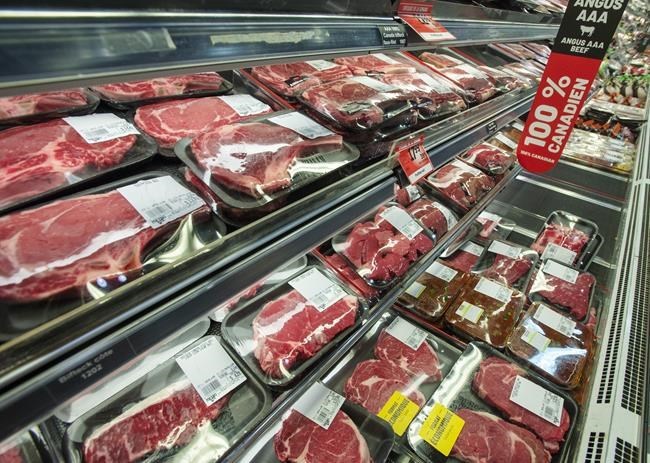Canadian beef consumers have a chance of getting some relief from high prices after a second class-action lawsuit has been filed alleging that the country's largest beef suppliers conspired to restrict competition and raise prices.
The latest lawsuit was filed by the Belleau Lapointe law firm on March 24 in Quebec Superior Court.
"I find this situation infuriating," said Sylvie de Bellefeuille, the lead plaintiff and a lawyer with Option consommateurs, in an interview.
"When we're talking about meat, especially beef, it's something that lots of people purchase for their basic food needs and when it comes to people with lower income, for example, they have a hard time now buying beef, so this is something that really outrages me."
She said the case was filed after reviewing a similar national lawsuit filed in British Columbia in February that would apply to everyone in Canada.
That one was filed by Camp Fiorante Matthews Mogerman on behalf of Giang Bui, a Vancouver resident who purchased beef for himself and his family.
In the statement of claim, the law firm argued that the companies effectively severed the economic relationship between the price of cattle purchased by them for slaughter from the price of beef sold in Canada.
"As a result, while the price the defendants paid for cattle dropped, the supply of beef was restricted and the price of beef was fixed at an elevated, anticompetitive level, causing damages to the plaintiff and class members, while increasing the profits of the defendants and their co-conspirators."
Lead attorney Reidar Mogerman said the Quebec and B.C. cases make the same allegations.
"We are working with the Quebec lawyers and ultimately there will be a co-ordinated national strategy," he said from Vancouver.
De Bellefeuille said the lawsuit has attracted a lot of attention because people are frustrated by the situation.
"It's one thing to have prices that are higher because of the pandemic, but learning that there could be more to it and that there's collusion between those companies makes things even more unacceptable."
The lawsuits allege that various companies related to Cargill Inc., JBS Canada ULC, Tyson Food Inc. and National Beef Packing Co LLC acted in concert since Jan. 1, 2015.
The lawsuits, which still have to be certified by judges, are seeking financial compensation equivalent to revenues generated by the artificially inflated portion of selling prices.
De Bellefeuille said the amount of compensation would likely be determined at trial.
But the sums could be large if class action lawsuits are certified to represent Canadians across the country.
"Hopefully we will be able to reimburse and get people to have at least part of their share. So we'll see how it goes, but our goal is to try to make sure that people get their money back."
The plaintiffs say the meat-packing plants control 85 per cent of the Canadian beef market and 80 per cent of the U.S. market.
The legal filing comes after JBS USA agreed in early February to pay US$52.5 million to settle one of several price-fixing lawsuits in Minnesota without admitting liability.
The U.S. Justice Department has been investigating the industry since the attorneys general for 11 Midwestern states urged it nearly two years ago to look into market concentration and potential price fixing by meat packers in the cattle industry during the coronavirus pandemic.
"The claims lack merit," Cargill spokeswoman April Nelson wrote in an email.
"We compete vigorously in the market and conduct ethical business, and we are confident in our efforts to maintain market integrity on behalf of our customers and consumers."
The other companies didn't respond to requests for comment.
This report by The Canadian Press was first published March 30, 2022.
Ross Marowits, The Canadian Press




